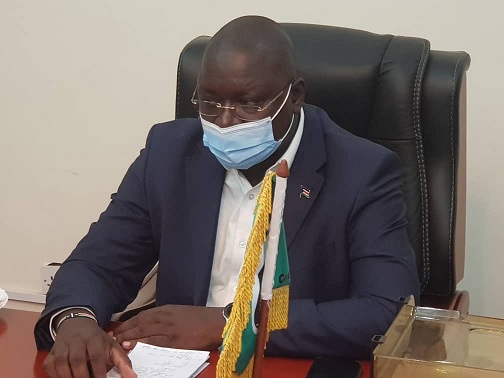The governor of South Sudan’s Central Equatoria state Emmanuel Adil Anthony has issued an order banning tree logging in all the six counties of the state.
The order follows several complaints raised by local communities about the rate of illegal mass deforestation of both natural and man planted trees in and around Kajo-Keji, Lainya, and Yei.
In a gubernatorial decree issued last Friday seen by Radio Tamazuj, Governor Anthony said the practice is illegal as of October 9, 2020.
“In exercise of powers conferred upon me by Republican Decree No.51/2020 of the President of the Republic of South Sudan, read together with article 99 (2) (L) of the Transitional Constitution of Central Equatoria State, 2012 (as amended); I, Emmanuel Adil Anthony Wani, Governor of Central Equatoria State do hereby issue this Gubernatorial Order to ban cutting of Logs within the Counties of Central Equatoria State with effect from the day of signature,” reads the decree in part.
Governor Adil tasked the law enforcement agencies in the state to take necessary actions to enforce the order accordingly.
“The State Ministry of Agriculture, Forestry, and Environment and the State Ministry of Local Government and Law Enforcement; the Counties Commissioners; Commissioner of Police and the Head of Legal Administration and Public Prosecution Attorney, Central Equatoria State, shall take necessary steps to implement this Order,” it reads.
Data from the Ministry of Environment shows that South Sudan is endowed with diverse natural forests and woodlands with 33% of land areas of approximately 664,000 square kilometers covered by trees and another 257,236 square kilometers or 40% covered by shrubs.
But experts warn the country's forest cover is fast diminishing if urgent measures are not taken to reverse the situation.
According to the country's 2018 inaugural State of the Environment Outlook Report, fuelwood and charcoal account for over 80 percent of all wood used in South Sudan, with an annual deforestation rate estimated at between 1.5 and 2 percent.




